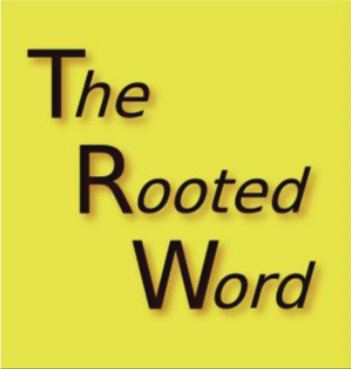Commenter on Channel:
Here is a comment left under one of our videos that suggests this erroneous teaching.
Holy Spirit =(Ruach)Rawach Qadash in ancient phonecian hebrew language….and is “feminine”…Old testament hebrew Strongs Concordance. However, New Testamant KJV John ch14 refers to the Holy Spirit as a masculine “he” What happened? the greek word used for “he” was ekeinos…meaning: he, it, the other (same), selfsame, that…. but did not always denote masculine or feminine but it was injected by translators…why?
My Reply:
The English language is a bastard language that has lost the richness of the other languages of the world. This is one place that it shows. What you are unknowingly doing is reading back into the object a sexual gender from the nominal “gender” linguistically. If you have studied European or Oriental (Middle Eastern) languages you will note that nouns have what is linguistically called “gender”. Every object has gender. In Ukrainian a dog is sabachka. Since it ends in an -a it is a feminine noun. That means it is declined according to feminine nouns ending in -a. Declension is when the ending changes to denote the word’s usage grammatically within the sentence. Even if the dog is sexually a male it is still called a sabachka, which is feminine. The linguistic gender has nothing to do with the sexual gender. In Polish dog is pies, which is masculine because it ends in a consonant, even female dogs. Spirit in Greek is neuter.
Now, there must be gender agreement in the pronouns that are used for the noun. In Greek the neuter for of the third person singular pronoun is used and it is that way in the text of John 14.
*τὸ πνεῦμα* τῆς ἀληθείας, *ὃ* κόσμος οὐ δύναται λαβεῖν, ὅτι οὐ θεωρεῖ *αὐτό* , οὐδὲ γινώσκει *αὐτό* . Ὑμεῖς δὲ γινώσκετε *αὐτό* , ὅτι παρ’ ὑμῖν μένει, καὶ ἐν ὑμῖν ἔσται.
I have bolded the references to the Spirit.
τὸ πνεῦμα Here we have the definite article in the neuter and “spirit”, a grammatically neuter noun.
ὃ Here we have the relative pronoun “who” in the neuter. The masculine is ὅς and feminine ἥ
αὐτό (x3) Here we have the third person singular pronoun in the neuter “it”. The masculine is αὐτός and feminine αὐτή
The problem with translation of grammatical gender comes into play here and you can see it in the English KJV.
Even the Spirit of truth; whom the world cannot receive, because it seeth him not, neither knoweth him: but ye know him; for he dwelleth with you, and shall be in you.
Notice they have translated the third person singular pronoun as “he” instead of “it”. Normally, translating “spirit” as “it” would be appropriate in English if the text were referring to the spirit as an object. An example would be, “His spirit left his body and it floated off.” That is not found in the Bible and it is a strange thing to say. Imagine in English if we had said, “and he floated off.” That would sound strange indeed. However, in the case of the Holy Spirit He is not connected to a body and He is a person in His own right. He is not the same as the Father or the Son. In that case, it is appropriate to refer to the Holy Spirit as He.
In 1 Samuel 28, Samuel, who is dead and arises in spirit is called a man, literally. It is the form of “man” in Greek that indicates sexual gender, not the generic “anthropos”, meaning “human being”. Whether you refer to the Hebrew or the Greek that is true.
אישׁ (eesh) a man as an individual or a male person
ἀνήρ (aner) a man (properly as an individual male)
Note the grammatical genders of Spirit in the three languages: feminine in Hebrew (רוּחַ, rūaḥ), neuter in Greek (πνεῦμα, pneûma) and masculine in Latin (spiritus)
Also, note that the Hebrew of the Old Testament that you read today was created in the 9 centuries AFTER Christ’s Ascension, by the school of Jewish leaders who crucified Christ, for the express purpose of altering the written text they had then to reflect what the rabbis were telling each other it “really” meant and to conceal the prophecies the Christians were using to prove Jesus was the Christ. You can find a summary of why we have chosen to use the LXX for the Old Testament translation of The Rooted Word here The Rooted Word Old Testament
I’ve heard that same mistake you are writing about preached from the pulpit. And as a professional Linguist I cringe when I hear it. The ignorance of the statement shows the laziness of the teachers who go around teaching it and their desire to create what is not there in the text. Had the Spirit been feminine that would be a significant issue and would have been mentioned as significant in the text.
Another angle of this is the sheer arrogance of Evangelical Protestants to come up with this idiocy and yet oppose the same suggestion in the person of Mary by the Ancient Churches. Yet, in the Catholic, Eastern Orthodox, Oriental Orthodox, Armenian, and Ethiopian case Mary literally is female. Ask yourself, judicially, why the Evangelicals reject the significance of Mary, while the Bible upholds it in the Gospel account of her and the announcement of the birth of Jesus. This is a real gender issue that deserves study and has deep theological significance, which the Ancient Churches were not afraid to plumb.
